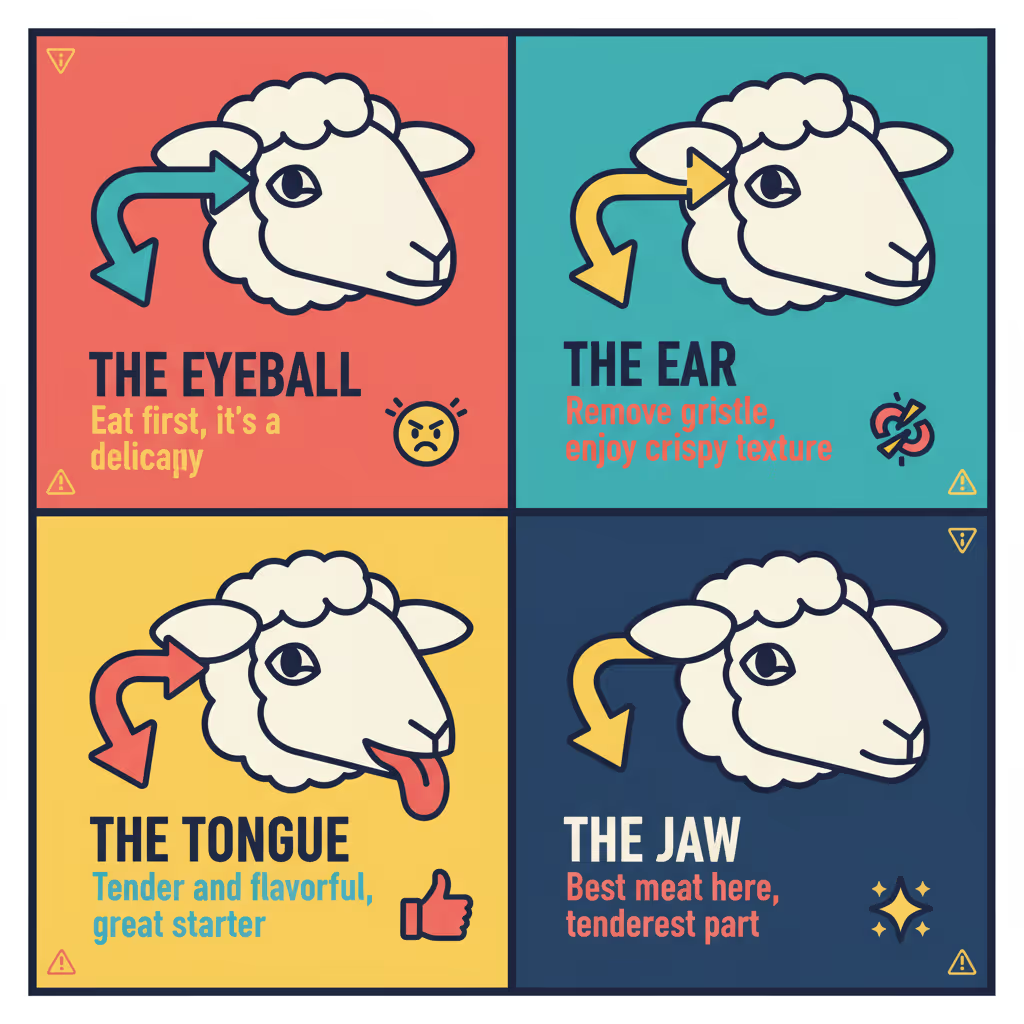You’re sitting at your desk, staring into the void of your Tupperware container. It’s that leftover chicken and rice again. It’s fine. It’s… food. You sigh, scrolling through your phone, dreaming of a better lunch. Now, imagine you’re a Viking. You’ve just come in from a long day of, you know, Viking stuff—raiding, sailing, braiding your magnificent beard. You’re starving. And for dinner? A boiled sheep’s head. Staring back at you from the plate. Suddenly, your sad desk lunch doesn’t seem so bad, does it?
Welcome to the world of Smalahove, a traditional Norwegian dish that proves Vikings were hardcore in every aspect of their lives, especially their dinner plates. This isn’t some long-lost, forgotten meal. People in Norway still eat this. And it’s exactly what it sounds like: a whole sheep’s head, torched, smoked, boiled, and served up for your dining pleasure. 🐑💀
Before you start gagging, you have to understand the Viking mindset. These were people who lived in a harsh, unforgiving environment. Wasting food wasn’t an option. It was a death sentence. The tradition of eating sheep’s head, which is still alive and well in places like Voss, Norway, comes from a deeply practical, sustainable philosophy: use the whole animal. From nose to tail, nothing was wasted. The head, which most cultures would toss, was seen as a valuable source of fatty, rich meat.
Originally, this was just simple, everyday peasant food. It was what you ate on a normal Tuesday. But over time, as food became more plentiful, smalahove went through a major glow-up. It transformed from a humble meal of necessity into a celebrated delicacy, a festive dish reserved for special occasions, especially the Christmas season. It went from being served with a simple glass of milk to being paired with beer and strong aquavit. It’s the ultimate zero-to-hero story, but for a boiled sheep’s head.

So, you’re face-to-face with a smalahove. It’s on your plate, eye and all, looking back at you. What do you do? First, you take a shot of aquavit for courage. Then, you follow the rules.
Part of the Head
What to Do With It
Pro-Tip
The Eyeball
Traditionally, you eat this first. It’s considered a delicacy.
Don’t make eye contact. Just… go for it.
The Ear
Remove the gristle, then enjoy the crispy texture.
It’s like a pork rind, but, you know, from an ear.
The Tongue
Another prized part, very tender and flavorful.
A great starting point for the squeamish.
The Jaw
This is where the best meat is. It’s the tenderest, fattiest part of the head.
This is your reward for being brave.
Modern restaurants are a bit more forgiving. If you can’t handle the intense stare-down with your dinner, many places will serve it as “pulled meat,” which is a lot less confrontational. But for the true Viking experience, you have to face the face.
The next time you’re feeling uninspired by your lunch, take a moment to appreciate it. It’s not looking back at you. It doesn’t have a tongue you have to navigate. It’s just a simple, non-judgmental meal. And for that, we can all be grateful.
So, could you handle a Viking dinner? Or does your sad desk lunch suddenly look like a Michelin-star meal? Either way, you have to admit, the Vikings were on another level. 🔥
1.Visit Norway - "Smalahove – heads on the menu" A fantastic overview of the modern smalahove tradition in Voss, Norway. It covers the history, the cultural shift from everyday meal to delicacy, and how it’s served today. https://www.visitnorway.com/things-to-do/food-and-drink/smalahove/
2.Wikipedia - "Smalahove" For the essential facts, including the different names for the dish, the preparation process (salting, smoking, steaming), and its cultural significance as a pre-Christmas meal. https://en.wikipedia.org/wiki/Smalahove
3.Mashed - "Norway's Christmas Feast Consists Of Eating A Sheep's Head" This article provides great context on the “waste-not” philosophy behind smalahove and its origins in the town of Voss. A good, quick read on the topic. https://www.mashed.com/1114591/norways-christmas-feast-consists-of-eating-a-sheeps-head/